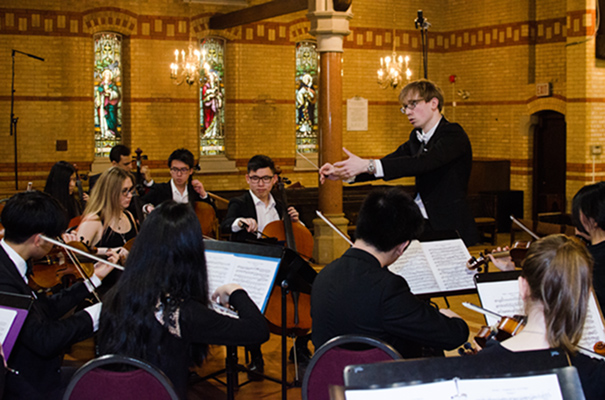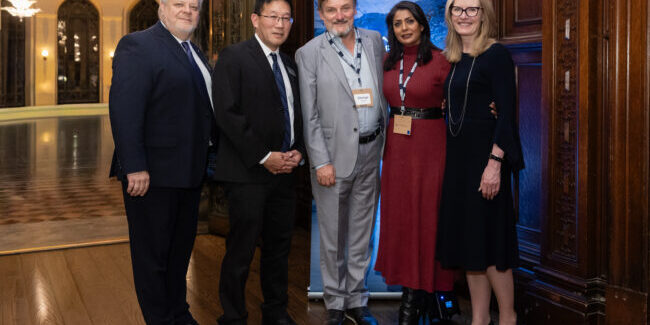
Music and engineering students at U of T will soon have new ways to combine their passions. Two programs, administered collaboratively by U of T Engineering and the Faculty of Music, are set to launch in September of 2018: a minor in Music Performance and a certificate in Music Technology.
“I love engineering and I love music, and it’s never occurred to me to see them as separate,” says Professor Willy Wong (ECE, IBBME), director of the new music minor.
Wong points out that the Faculty already has a thriving music scene, with groups such as the Skule™ Orchestra, Skule™ Stage Band and Skule™ Jazz Combo. He also mentions several U of T Engineering alumni who are now professional musicians, such as opera singer Isabel Bayrakdarian (EngSci 9T7), conductor Julian Kuerti (EngSci 9T9), and composer and performer Andrew Forde (MSE 1T1, MIE PhD candidate).
“Over the years, I’ve seen many students like them, who really could have chosen either path,” says Wong. “Through collaboration with the Faculty of Music, we’re enabling students to choose both.”
To complete the minor, students will need to take the equivalent of three full-year courses in music, including music theory and a newly created music performance course. Led by Professor Midori Koga, in collaboration with other faculty members and doctoral candidates in performance, the course features weekly individual and group instruction and can be completed either as a soloist or as part of a small ensemble.
“Students selected for the Minor will have the opportunity to learn from the pedagogical excellence of our faculty members and experience some of the training that produces professional musicians,” says Ryan McClelland, Associate Dean, Academic & Student Affairs in the Faculty of Music.
“In addition, having engineering students in music courses will bring new perspectives and areas of knowledge into the classroom,” he says. “This enriches the experience of both students and faculty. It also opens up possibilities for future collaborations that might extend well beyond students’ time at U of T.”
The certificate requires three half-year courses, and will focus on the intersection between the technical and artistic aspects of sound. Graduates may choose to pursue a future in areas such as digital music distribution, music production or hardware/software development.
But Wong points out that many of the future career paths for students trained in both engineering and music have yet to be fully mapped out, which is part of what he finds exciting about the program.
“Think of a device like the Amazon Echo, which listens and responds to voice commands inside your home,” he says. “Where does that technology come from? It comes from students who dream, and the engineers say to themselves, ‘How can I make this world a more interesting place?’”




